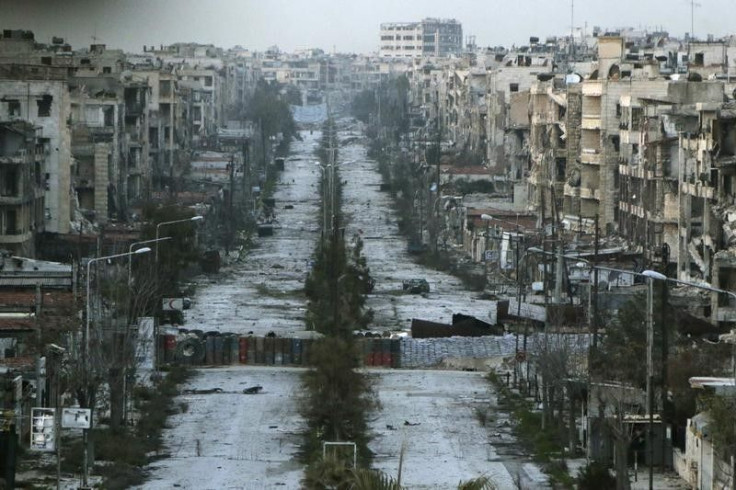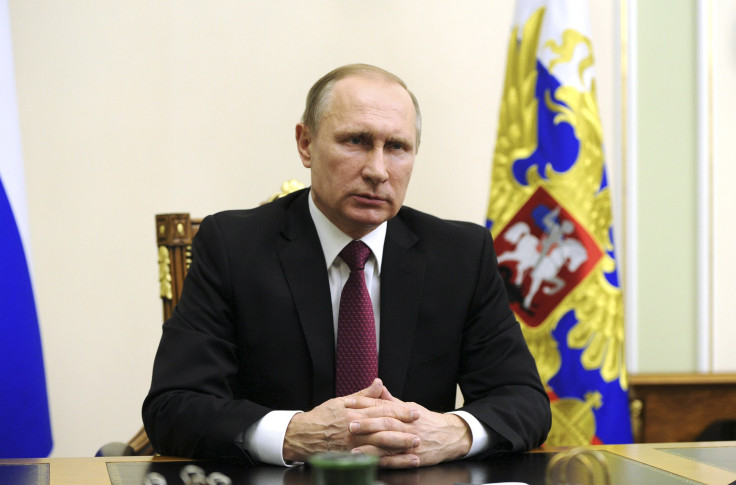US, Russia Abruptly Announce Syria Ceasefire Plan After ISIS’ Deadly Bombing In Damascus

After the Islamic State group detonated bombs in Damascus on Sunday, killing as many as 140 people in the Syrian capital, the U.S. and Russia scrambled to announce a ceasefire deal in the hope it would quell the violence in the country. But a document released by the U.S. and Russia on Monday did not outline the details of how the ceasefire would be implemented on the ground, raising fears it would fail even before it officially begins Saturday.
“They are going to continue to go forward with this incomplete and partial solution,” said Andrew Tabler, an expert on Syria at the Washington Institute for Near East Policy, a think tank based in the District of Columbia. “Unfortunately, this is the new normal in Syria.”
The details in the ceasefire document are sparse and do not clearly define the scope of the plan. It is unclear whether or how Syria, the U.S., Russia and Iran would be able to continue their military operations in the country. The document does not describe who will monitor the ceasefire on the ground and which country or international body will be in charge of reporting ceasefire violations.
“There are still pieces of this that need to be fleshed out,” said U.S. State Department representative John Kirby. He said those details will be ironed out this week, adding that all the involved parties would be allowed to continue targeting the Islamic State group, aka ISIL or ISIS.
“We can’t simply call a truce and allow them to be part of any political future in Syria,” Kirby said. “We can’t just stop putting pressure on ISIS. [Its forces] represent the enemy.”

The so-called ceasefire task force, including the U.S., Russia, Iran and other countries, was set to meet last Friday to define the agreement, but the event was canceled at the last minute. Put forward by the U.S. and Russia, the ceasefire plan took its current shape after U.S. Secretary of State John Kerry and Russian Foreign Minister Sergey Lavrov spoke on the phone Sunday, according to the State Department. It is unclear whether Kerry spoke to his counterpart in Iran, but Kirby said Monday that the Middle Eastern country had been contacted. It also is unclear from the ceasefire announcement whether the Syrian opposition had been briefed on it.
“If implemented and adhered to, this cessation will not only lead to a decline in violence, but also continue to expand the delivery of urgently needed humanitarian supplies to besieged areas and support a political transition,” Kerry said in a statement Monday.
However, Tabler said the ceasefire deal will do little to bring about a political transition in Syria.
“The problem is that these negotiations will not end the war. They might settle it down in some areas,” Tabler contended. But, he said, true peace will not come until the regime of President Bashar Assad can reach an agreement with the opposition rebels.
“The Assad regime is on the offensive, and it is going to hold on, but it is not going to be stable,” Tabler said, adding that the violence, especially around Damascus, will only get worse in the event the international community cannot bring the regime and the rebels to the negotiating table. “The regime’s penetration into society is very limited, so I don’t think they can predict or stop these [bomb attacks] from coming.”
Although the final details of the ceasefire agreement have not been worked out, U.S. President Barack Obama’s administration is optimistic that it is the best option at present. It has ruled out sending troops to fight the Assad regime and the Islamic State group directly on the ground.
“There is an opportunity here,” Kirby said. “We have to try it out.”
© Copyright IBTimes 2024. All rights reserved.





















